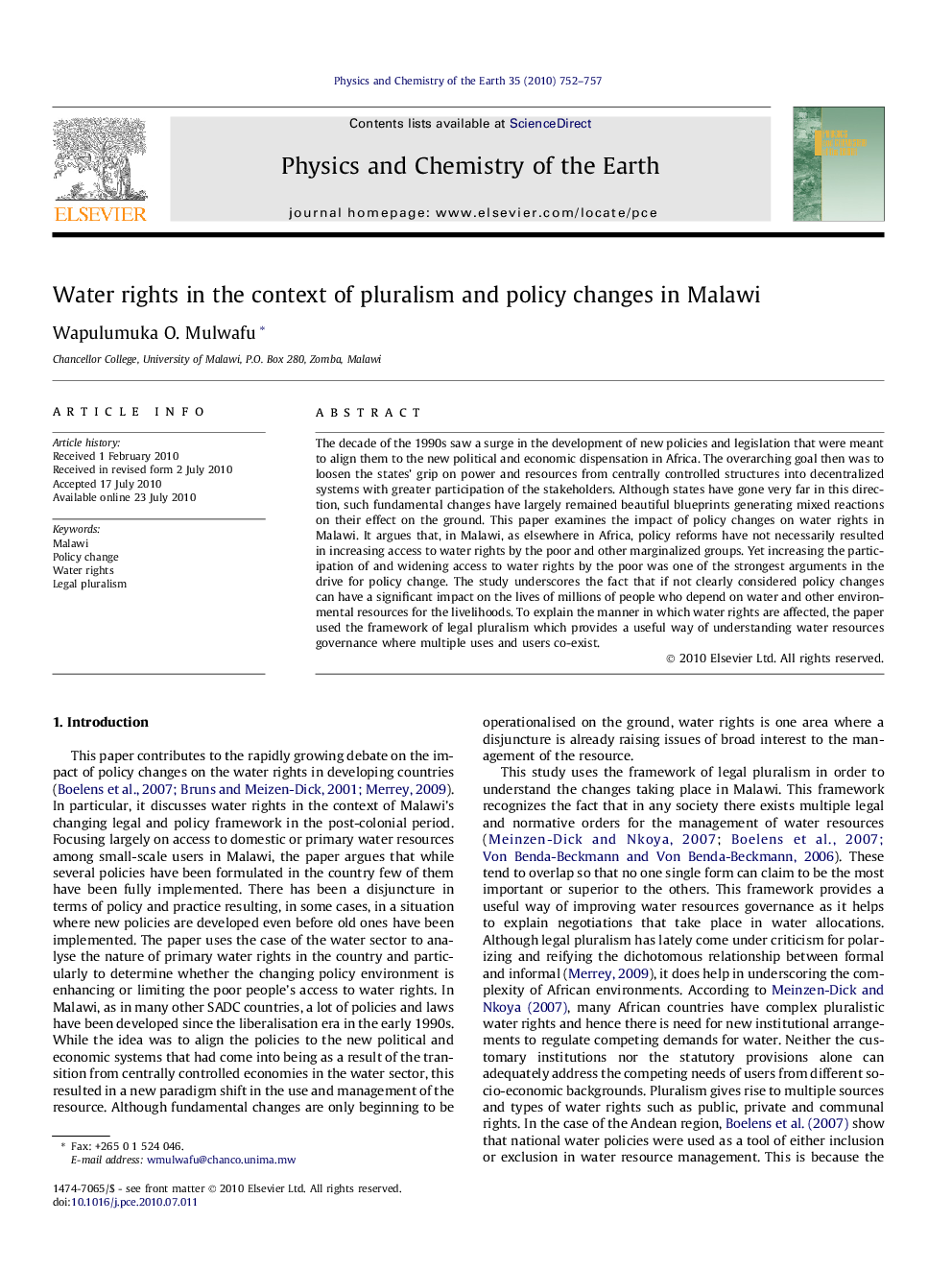| Article ID | Journal | Published Year | Pages | File Type |
|---|---|---|---|---|
| 4721779 | Physics and Chemistry of the Earth, Parts A/B/C | 2010 | 6 Pages |
The decade of the 1990s saw a surge in the development of new policies and legislation that were meant to align them to the new political and economic dispensation in Africa. The overarching goal then was to loosen the states’ grip on power and resources from centrally controlled structures into decentralized systems with greater participation of the stakeholders. Although states have gone very far in this direction, such fundamental changes have largely remained beautiful blueprints generating mixed reactions on their effect on the ground. This paper examines the impact of policy changes on water rights in Malawi. It argues that, in Malawi, as elsewhere in Africa, policy reforms have not necessarily resulted in increasing access to water rights by the poor and other marginalized groups. Yet increasing the participation of and widening access to water rights by the poor was one of the strongest arguments in the drive for policy change. The study underscores the fact that if not clearly considered policy changes can have a significant impact on the lives of millions of people who depend on water and other environmental resources for the livelihoods. To explain the manner in which water rights are affected, the paper used the framework of legal pluralism which provides a useful way of understanding water resources governance where multiple uses and users co-exist.
